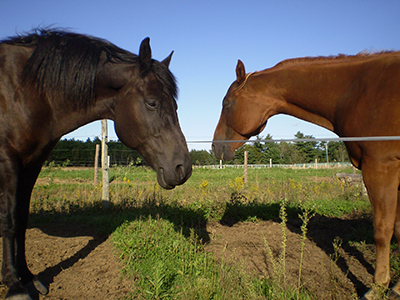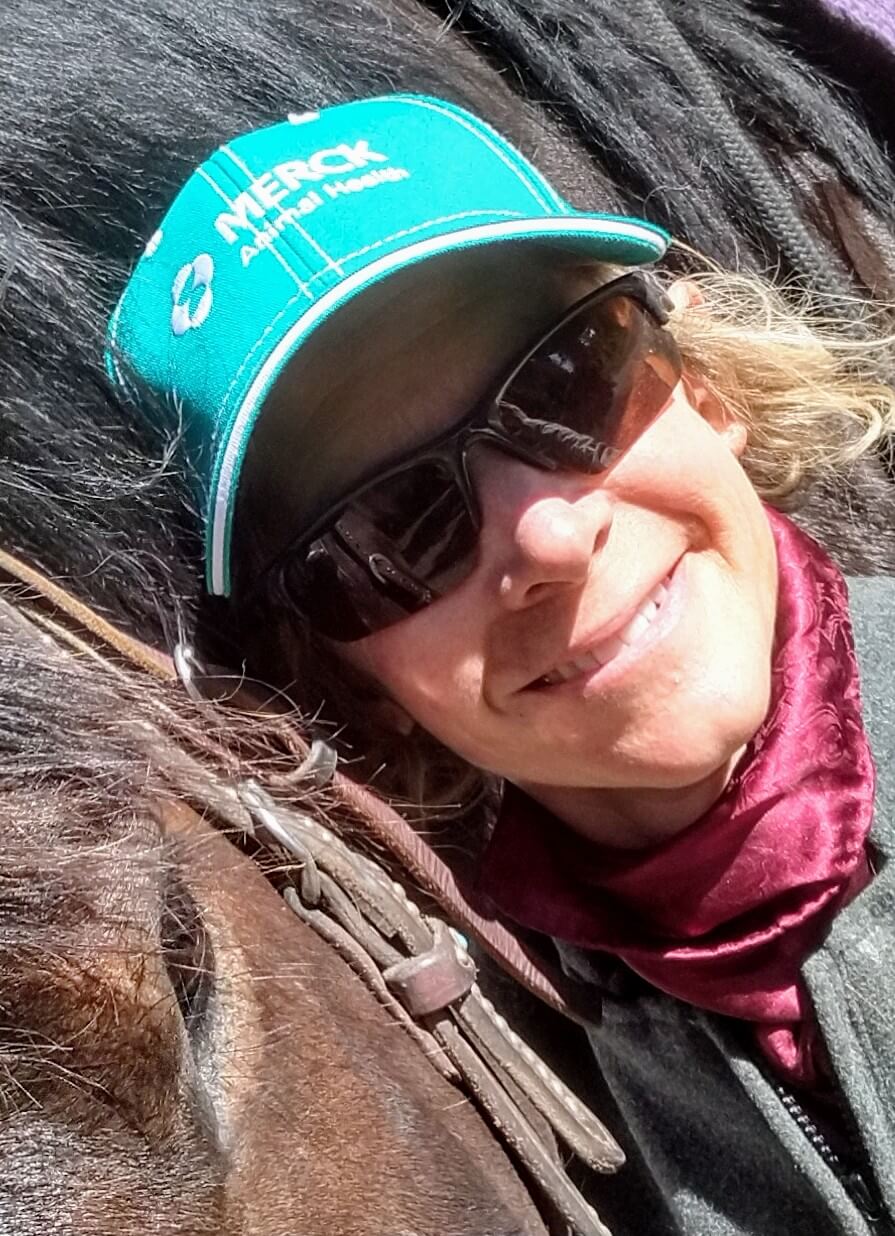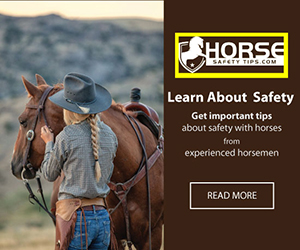Making Time to Improve Ground Manners
by Laura Schonberg
 Since bringing home a new mare this winter, I have been astonished at how this extra horse changed our existing herd of geldings. It has afforded new opportunities for better management, one of the big ones being feeding time. My horses were embarrassingly rowdy a couple of weeks ago when my best friend stopped by with her young daughters to help feed. I was shocked at my animals’ pushy behavior so we promptly began working on the following:
Since bringing home a new mare this winter, I have been astonished at how this extra horse changed our existing herd of geldings. It has afforded new opportunities for better management, one of the big ones being feeding time. My horses were embarrassingly rowdy a couple of weeks ago when my best friend stopped by with her young daughters to help feed. I was shocked at my animals’ pushy behavior so we promptly began working on the following:
-
Standing quietly in the stall
I now prepare dinner with a flag in my hand. My horses are respectful of the flag and understand it means “move your feet.” So, if there’s pawing, kicking, wild eyes, pinned ears, crowding and/or pushing they are flagged and told to leave the stall. In an uncomfortable hurry.
-
Minding their own business
My horses can see each other over the stalls. I noticed they would nip and glare at each other over the boards. Now, when feeding, I’m taking the time to support them in being responsible for polite behavior. They’re offered the opportunity to stand quietly with each other, or leave the stall in a hurry. I don’t wait for the situation to improve if they get antsy.
-
“Asking” nicely
When I took the time to watch, I realized the ear pinning wasn’t reserved for each other, it was also being directed at me. Now, when the grain bucket is in my hand, they have to back when I ask (again, this relates back to ground work) and come toward me with a good attitude. This looks like at least one ear up, a quiet eye and a low head. If it’s a glare, raised head, or pinned ears, the flag goes to work. When they enter again, I am looking for the subtle cues of equine polite behavior— forward ears, soft eye, lowered head, willingness to back when I ask.
Because I am so often in a hurry when feeding, I was oblivious to the mealtime manners in the barn. Taking an extra few minutes to maintain safety and good etiquette is showing in the improved behavior of my horses. Responding to bad behavior is important because the bad behavior builds on itself — a pushy horse on the ground is an unsafe horse in the saddle. This is definitely a case of “something is better than nothing.”

Thankful to call the Pacific Northwest home, Laura Schonberg is an educator in a local school district and is outside at her place when she isn’t inside at work. Summers are spent cow-girling at a friend’s ranch, with forrays into the Cascade Mountains as time and weather permit year-round. Winter finds her at a local barn doing dressage lessons to support her ranch riding, and re-starting horses through the county’s equine rescue program.





